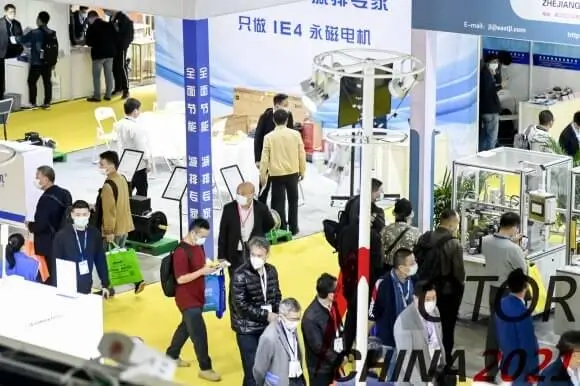In the rapidly advancing realm of miniature engineering, few components embody the perfect blend of power, precision, and versatility like the N20 micro gear motor. Underpinning countless innovative applications—from tiny robotics to automated gadgets—these compact motors have revolutionized how engineers, hobbyists, and entrepreneurs approach design challenges. At the core of their performance lies a critical parameter: torque.

Understanding the N20 Micro Gear Motor
The N20 motor is named after its standardized dimensions: roughly 20 millimeters in diameter. It’s a small, cylindrical device powered by a DC motor that integrates a gearhead to modulate speed and torque. This small size makes it ideal for applications where space is limited but performance cannot be compromised. The gear mechanisms—often planetary, spur, or worm gears—translate the motor's high rotational speed into greater torque at a lower speed.
Why Torque Matters in Micro Motors
Torque, in simplest terms, is the rotational force the motor can produce to turn or move an object. In practical applications, it determines a device's capacity to perform work—whether it’s driving a robotic arm, opening a small latch, or spinning a tiny fan. For N20 micro gear motors, understanding torque is vital because it influences how much load the motor can handle without stalling or overheating, directly impacting reliability and efficiency.
The Factors Influencing N20 Motor Torque
Several elements govern the torque output of an N20 micro gear motor. These include:
Motor winding strength and design: The thickness of the copper windings and the magnetic design influence the magnetic field strength, directly affecting torque. Gear ratio: Higher gear ratios amplify torque but reduce speed. For FDM (force/torque multiplication), gear specifications are fundamental. Voltage supplied: Increasing voltage typically boosts torque up to a certain threshold, beyond which overheating may occur. Load conditions: The torque needed to start or maintain rotation depends on the load; heavier loads require more torque. Friction and mechanical efficiency: Friction within gear housings and bearings can reduce the overall torque delivered to the load.
Typical Torque Ratings of N20 Micro Gear Motors
Most commercially available N20 micro gear motors offer torque ranges from approximately 0.8 to 4.0 N·cm (Newton centimeter). Variations depend on the model, gear ratio, and manufacturer specifications. For example, a standard 1:100 gear ratio N20 motor might deliver around 1.2 N·cm of torque, while a model with a 1:50 gear ratio offers approximately 2.5 N·cm. These figures, while seemingly small, are quite powerful in miniature applications.
Applications Leveraging N20 Micro Gear Motor Torque
The precise torque capabilities make N20 motors suitable for diverse engineering ventures:
Miniature Robots: Small servos and drive wheels rely on consistent torque to navigate uneven terrain or carry light payloads. Automation Devices: Micro-actuators in syringe pumps, jewelry making machines, and precision feeders often depend on the torque output. DIY Projects: Hobbyists harness their torque for DIY drones, automatic curtains, or custom mechanical toys. Medical Devices: Compact motorized pumps or analysis tools in biomedical instrumentation benefit from the balance of torque and size.
Balancing Torque and Speed: A Delicate Dance
Selecting an N20 gear motor involves a trade-off between speed and torque—a concept known as the torque-speed characteristic. Higher gear ratios yield more torque but at the expense of rotational speed. Conversely, lower gear ratios maximize speed but reduce torque. Depending on your project’s requirements, understanding this relationship helps in choosing the right motor specifications.
Measuring and Testing N20 Micro Gear Motor Torque
To ensure your application functions smoothly, measuring the actual torque of your motor is vital. Common testing methods include:
Using a torque sensor: Attaching a load cell or torque sensor allows real-time measurement. Using known weights: Applying a force at a known radius and measuring the effort needed for rotation. Estimating based on specifications: Comparing data sheets and previous test data provides preliminary insights.
Accurate measurement ensures your project performs reliably under expected loads and prevents motor failure due to overload.
Emerging Trends in Micro Gearing and Torque Enhancement
Ongoing innovations continue to push the boundaries of what N20 micro gear motors can achieve in terms of torque:
Advanced gear materials: Incorporation of durable plastics and metals reduces friction and wear. Magnetic enhancements: Improved magnetic materials in the rotor enhance magnetic flux and torque. Custom gear ratios: Tailored gear sets allow for specific torque and speed configurations. Integration with sensors: Feedback systems optimize torque delivery dynamically, enhancing precision.
By exploring these trends, engineers and hobbyists can unlock even higher performance levels from the humble N20 motor.
Conclusion and Next Steps
Understanding the torque capabilities of the N20 micro gear motor unlocks a world of possibilities in miniature engineering. Whether you’re designing a robot that needs just enough power to climb a tiny incline or creating a delicate automatic mechanism, grasping how torque interacts with gear ratios, voltage, and load conditions is essential. The next part delves deeper into real-world applications, how to select the right N20 gear motor based on torque needs, and tips for optimizing performance in your projects.
Established in 2005, Kpower has been dedicated to a professional compact motion unit manufacturer, headquartered in Dongguan, Guangdong Province, China.




































